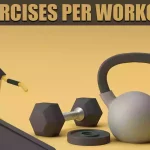Embarking on a weight loss journey involves multiple physical and emotional changes in improving well-being and achieving a healthier body, causing a shed of some pounds. However, losing weight is not always smooth; it involves encountering some unexpected sensations such as body aches. This article will uncover some of the reasons behind these aches and explore the strategies to manage them effectively.
How Does Weight Loss Occur?
Weight loss is a complicated physiological phenomenon that affects many systems as well as the overall look of the body. Your body begins to use its fat reserves to boost energy levels when you burn more calories than you consume, triggering effective weight loss.
Does Your Body Ache When Losing Weight?
Depending on your approach to weight loss, certain unexpected sensations such as body aches occur due to alterations in the musculoskeletal system. By shedding a few pounds, your body experiences a reduction in fat mass and sometimes muscle mass. Such sensations in a body can be the result of several factors such as:
Muscle Soreness
While adopting an active lifestyle or engaging in physical activities, your body can experience micro-tears. Micro-tears are a normal part of muscle strengthening but can lead to muscle soreness, ultimately causing body aches.
Changes In Diet
During the weight loss journey, many people switch to a healthier diet and reduce the consumption of processed foods, unhealthy fats, or refined sugar. These changes in the diet cause a reduction in water retention and inflammation, imposing a positive impact on overall health. However, your body might primarily respond to these dietary changes with discomfort and cause body aches.
Dehydration
While shedding excess water weight, your body can inadvertently become dehydrated. The dehydration can cause generalized body discomfort and muscle cramps which are often mistaken for body aches.
Stress And Cortisol
Sometimes weight loss is accompanied by stress, which triggers the release of cortisol – a hormone associated with inflammation and discomfort, which ultimately give rise to body aches.
Nutrient Deficiencies
Due to extreme diet and excess calorie restrictions, weight loss can lead to nutrient deficiencies. A lack of essential minerals and vitamins can manifest as fatigue, body aches, or other discomforts.
What Are the Tips to Manage Body Aches During Weight Loss?
Experiencing body aches during weight loss is common however, there are several strategies that help to manage these discomforts:
- Instead of intense workout routines, gradually increase your physical activity levels.
- Focus on a balanced diet that your body needs, including whole grains, fruits, vegetables, or essential minerals
- To avoid muscular cramps, keep yourself hydrated by drinking enough water periodically.
- Prioritize warming up and stretching before and after exercise to increase flexibility and lower your chance of getting sore muscles.
- Between workouts, relax for some time to ensure muscular recovery and general health.
Conclusion
Experiencing body aches during weight loss is common because it can be attributed to various factors such as muscle soreness, nutrient deficiencies, dehydration, and stress. These discomforts seem discouraging but are often temporary and can be managed effectively by following the righteous weight loss approach. By adopting a gradual workout routine, maintaining a balanced diet, staying hydrated, and prioritizing stretching, you can overcome the challenges of weight loss with greater ease.












